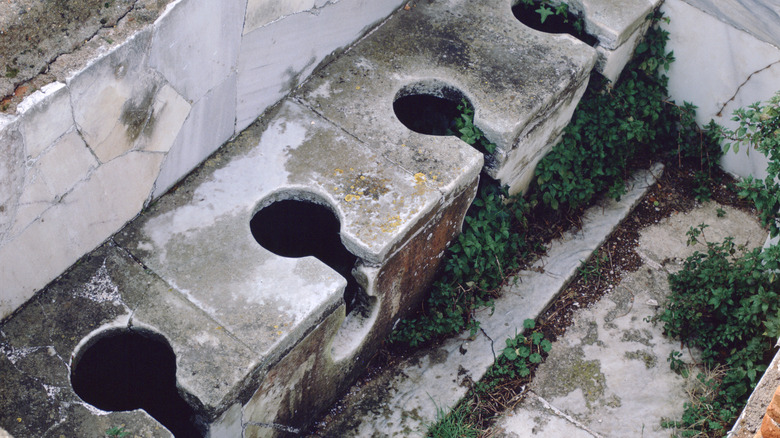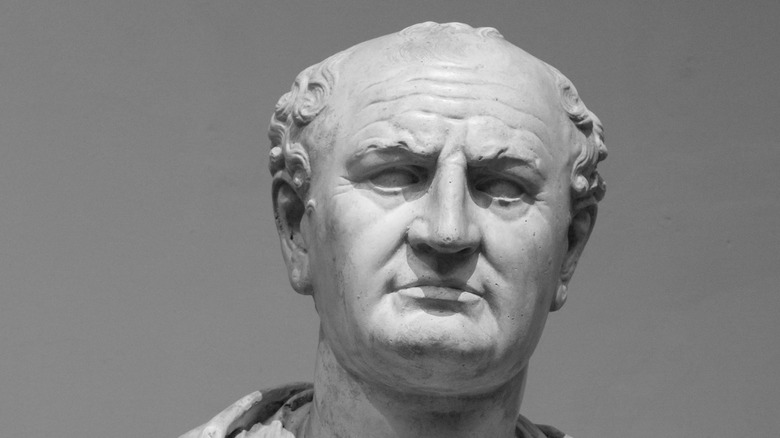How Ancient Romans Used Urine For Tanning Leather
To the Ancient Romans, urine was liquid gold. According to Mental Floss, human waste was used daily for a variety of reasons, and urine was especially valued. When left out for long periods of time, it transforms into ammonia (via Smithsonian Magazine). This is now a common ingredient in cleaning products, and many Roman launderers used urine to get stains out of fabrics. Per Medimatic, when urine changes into ammonia, it can neutralize dirt and grease. In addition, it can foam and turn into a disinfectant. It also has a knack for keeping clothes white and brightening colors.
How would they get urine? It was common for public urinals to line the streets of Ancient Rome. Any passerby could relieve themselves, and the urine was then collected from this vessel and taken away. Besides its cleaning properties, it was also used to tan leather, as urine can remove hair and flesh from animal hides. One could either pee on the leather or soak it in a large vat to get the job done. When this process was complete, feces (either dog or human) was used to soften it. The smell was so intense that tanneries were forced to the outskirts of town.
Urine was taxed in Ancient Rome
Beyond cleaning clothes and leather making, the urine of both humans and animals was used as a teeth whitener (via Mental Floss). That's right — the Ancient Romans believed it kept their smile pearly white and would rinse with it. In fact, urine was so cherished that it became taxed. Around A.D. 70, Emperor Vespasian imposed a tax on the collection of urine from Roman sewage systems (per Lessons from History). Likewise, he is said to have built the first public toilet, and many urinals in Europe are still named after him.
According to Medimatic, it was mostly launderers and tanners who were paying this tax, as they were the biggest buyers of urine. Most Roman citizens were not a fan of it, including Vespasian's own son, Titus (via National Geographic). Vespasian's response? "Pecunia non olet," Latin for "money doesn't stink." In other words, money is money, regardless of its origins. It's said that the Roman Colosseum was financed, in part, from this urine tax. Per Smithsonian Magazine, urine is still used today but for different reasons, including as a source of electrical power and in various medicines. It's safe to say the Ancient Romans were definitely on to something.

